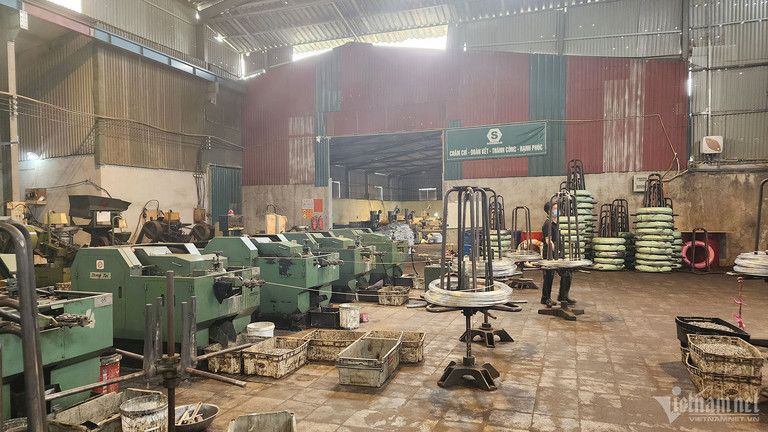
After the Covid-19 pandemic, a number of large corporations such as Samsung Electronics, Canon and Apple relocated their production bases from China to Vietnam. The move led to a new investment wave in Vietnam by satellite companies such as Foxconn and Luxshare Precision, followed by many Chinese enterprises in support industries.
Chinese investors set up factories and expanded their operation to processing and manufacturing such as electrical and electronic appliances, tires, textiles and garments, and footwear.
Sources said Innovation Precision Vietnam, belonging to Shandong Innovation Metal Technology, will build an aluminum alloy factory capitalized at $165 million in VSIP Nghe An Industrial Zone (IZ), while Runergy plans to build a semiconductor factory with $293 million.
Shenzhen MTC plans to build a factory manufacturing routers, digital signal transducers, LED lamps and televisions with registered capital of $24 million in Dong Nai. Meanwhile, Jiawei has invested $5.5 million in a project on manufacturing lamps and lamp parts.
Chinese investors may enter Vietnam under other nationalities, but they are all OEMs (original equipment manufacturers) providing products to clients all over the world, especially in North America.
Chinese OEMs have very large scale with factories covering an area of several hectares each, which can be built very quickly in Vietnam.
There are also smaller Chinese enterprises in support industries that set up factories in Vietnam to provide components to these enterprises and to export abroad.
Analysts say that Vietnamese enterprises now can feel pressure from Chinese enterprises in support industries.
Truong Thi Chi Binh, deputy chair of the Vietnam Association of Supporting Industries (VASI), said the past two years have seen many Chinese manufacturers moving to Vietnam. Most come to Vietnam to set up production bases to make products for export to North America and do not pay much attention to the domestic market.
Some Vietnamese support enterprises hope they can provide products to Chinese enterprises. However, the Vietnamese enterprises have found that the scale and demand of Chinese enterprises are too big and difficult to be satisfied.
Binh said Vietnamese support enterprises are expecting the government to help with land and capital for investment. The two factors are key for enterprises to expand production.
If the current situation does not improve, Vietnamese enterprises will stay in the same position forever. Even if they make new investments, they will still be small companies.
She said that some current policies are hurdles to the development of Vietnam’s support industries.
Chinese enterprises in support industries in Vietnam export to Europe and North America to avoid the US’s tariff barriers, because their exports are seen as products from Vietnam. This is a concern for domestic support industries.
Deputy Prime Minister Tran Hong Ha at the year-end conference of the Ministry of Industry and Trade (MOIT) on December 20 pointed out that Vietnam’s industries are still relying on foreign invested enterprises. In general, Vietnamese enterprises continue to do outsourcing for foreign partners with low added value.
Warning that competition in supporting industries will become stiff in 2024, Ha stressed that domestic enterprises need to upgrade and join the global game and catch up with the world’s trends.
The Foreign Investment Agency (FIA) under the Ministry of Planning and Investment (MPI) reported that as of December 20, 2023, 111 countries and territories had FDI (foreign direct investment) in Vietnam.
China ranks sixth among the top foreign investors in terms of capital, but ranks first in terms of number of newly invested projects (700 projects, accounting for 22 percent of total projects out of the total 3,188 new projects licensed in 2023).
Bang Duong